|
Of the hundreds of toxic plants in North America, only a handful are likely to bring serious harm to horses. The veterinarians of Starwood Equine have put together a useful field guide to assist horse owners in the identification of harmful plants common to the region. Most Common Clinical Signs of Poisoning Download the PDF below to view the other plants covered in this guide. Treatment Rapid development of illness and limited treatment options make plant toxicoses difficult to treat. Prevention is key. If you do see your horse ingesting harmful plant material we encourage you to remove the plant source (or your horse from the offending pasture) and call your veterinarian as soon as possible. Treatment options may include the use of:
Download the Guide The veterinarians of Starwood Equine have put together a useful "field guide" to assist horse owners in the identification of harmful plants common to the region. Please consider downloading the PDF guide at the bottom of this blog post. Save it to your phone or print it out for reference at your barn!
Note: This is not an all-inclusive list of plants toxic to horses. Rather, it's a list of plants commonly found in Northern California that are also toxic to horses. References:
University of California Division of Agriculture and Natural Resources' (UC ANR) “Livestock Poisoning Plants of California,” Forero, et al. EPub Jan 2011 https://ucanr.edu/sites/BayAreaRangeland/files/253120.pdf A Guide to Plant Poisoning of Animals in North America. 2001. A. P. Knight and R. G. Walter Poisonous Plants of California. Thomas C. Fuller and Elizabeth McClintock Horse Owners Field Guide to Toxic Plants. Sandra M. Burger
0 Comments
Leave a Reply. |
Topics
All
Archives
May 2021
|
||||||||
Privacy Policy | Copyright © 2019 Starwood Equine Veterinary Services, Inc. All rights reserved.

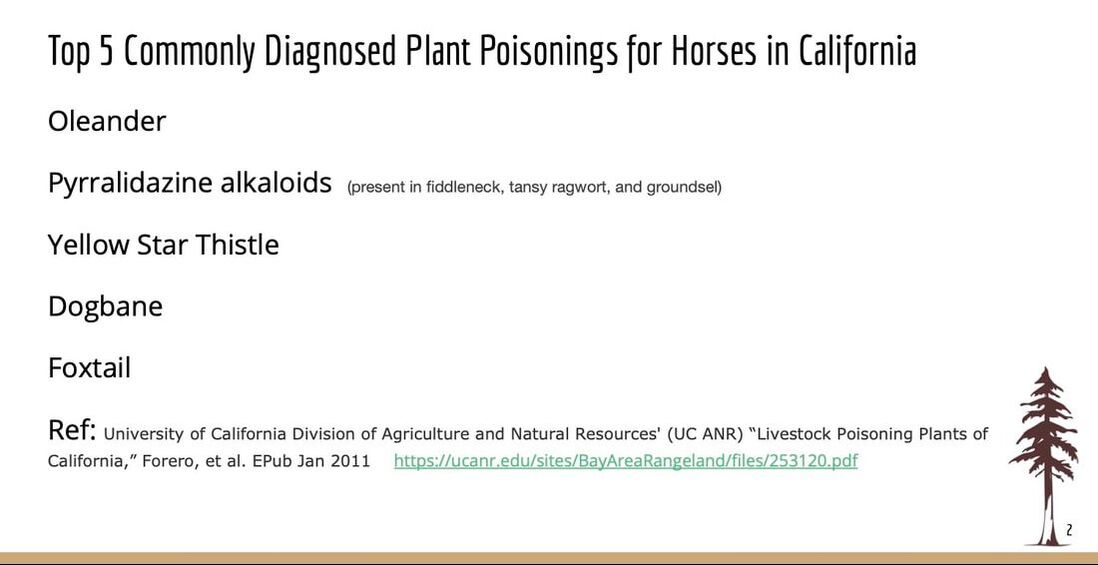
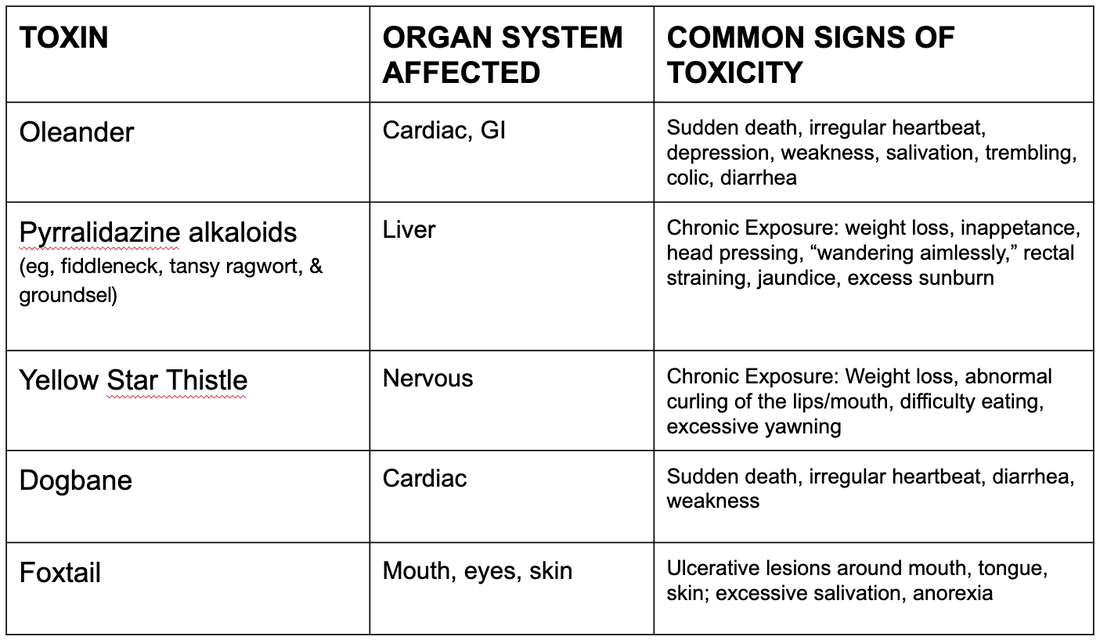
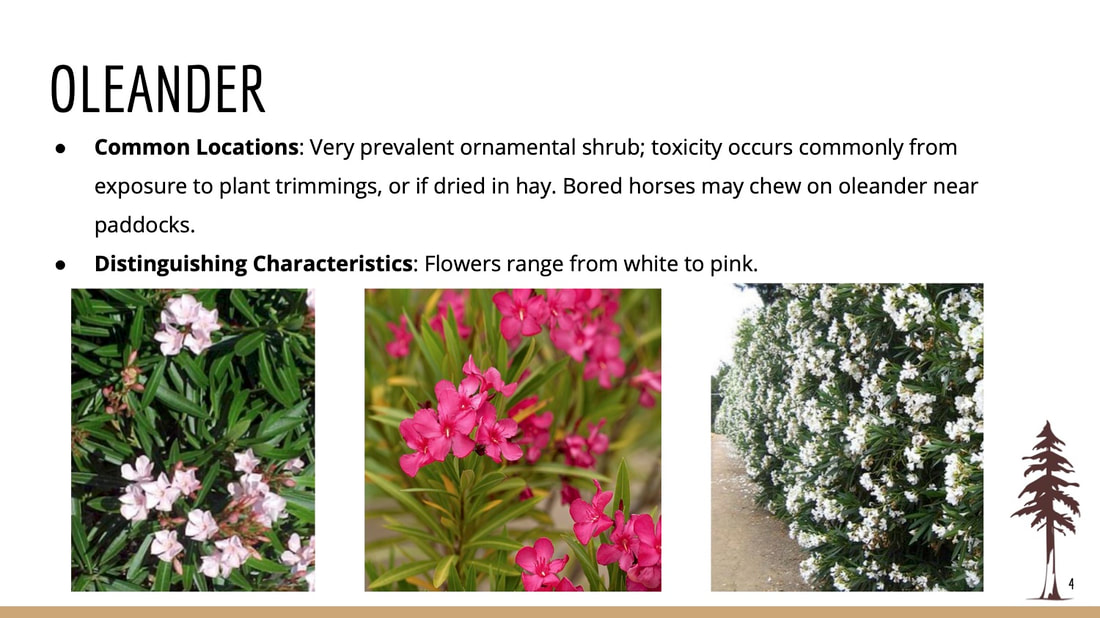
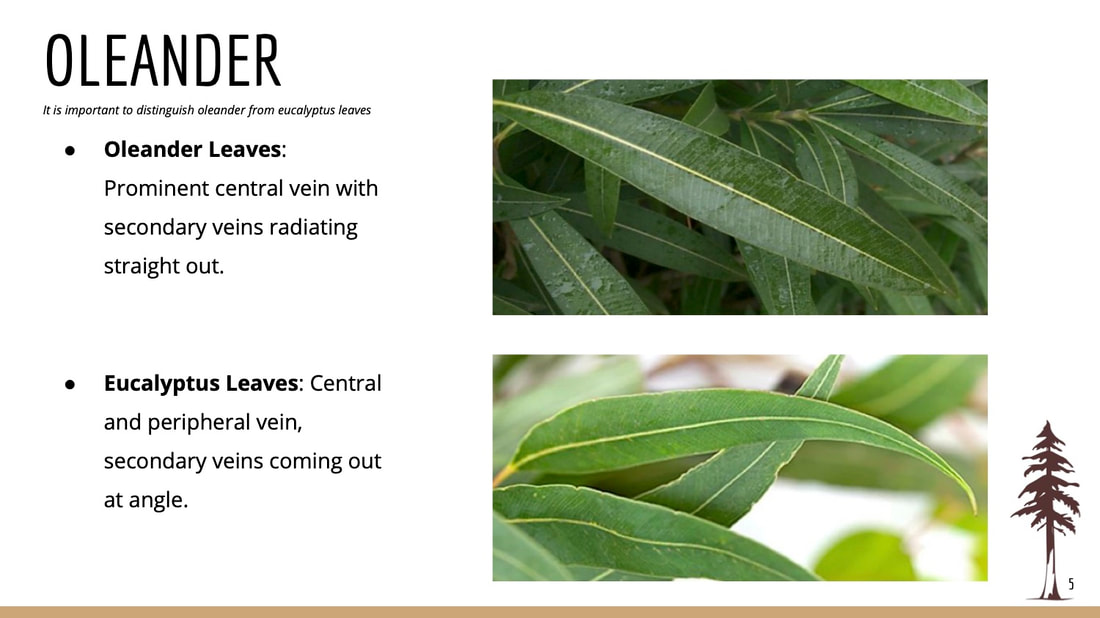
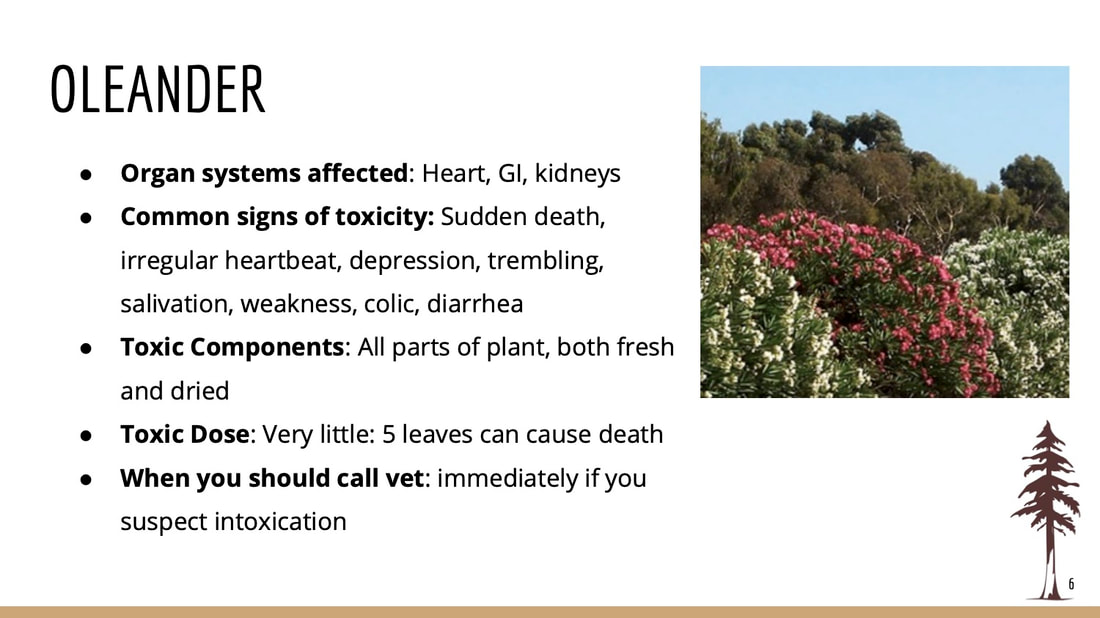
 RSS Feed
RSS Feed